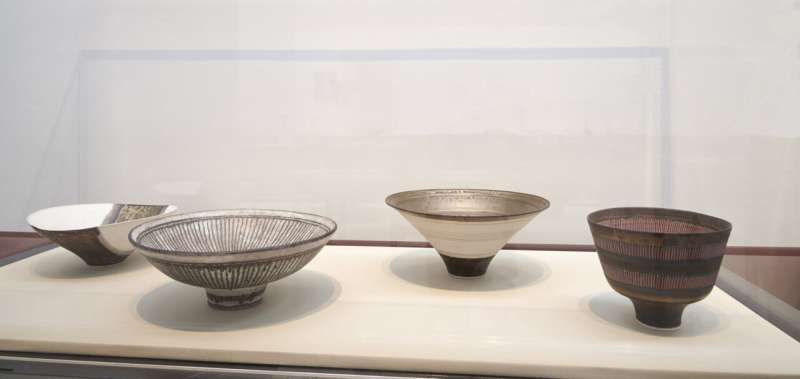[…] a new study from the University of Cambridge suggests that stopping to contemplate the beauty of artistic objects in a gallery or museum boosts our ability to think in abstract ways and consider the “bigger picture” when it comes to our lives.
Researchers say the findings offer empirical evidence that engaging with artistic beauty helps us escape the “mental trappings of daily life,” such as current anxieties and to-do lists, and induce “psychological distancing”: the process of zooming out on your thoughts to gain clarity.
[…]
Researchers found that study participants who focused on the beauty of objects in an exhibition of ceramics were more likely to experience elevated psychological states enabling them to think “beyond the here and now,” and more likely to report feeling enlightened, moved, or transformed.
This was compared to participants who were simply asked to look intently at the artistic objects to match them with a series of line drawings. The findings are published in the journal Empirical Studies of the Arts.
[…]
“Our research indicates that engaging with the beauty of art can enhance abstract thinking and promote a different mindset to our everyday patterns of thought, shifting us into a more expansive state of mind.”
“This is known as psychological distancing, when one snaps out of the mental trappings of daily life and focuses more on the overall picture.”
[…]
Participants were randomly split into two groups: the ‘beauty’ group was asked to actively consider and then rate the beauty of each ceramic object they viewed, while the second group just matched a line drawing of the object with the artwork itself.
All participants were then tested on how they process information, and if it’s in a more practical or abstract way. For example, does ‘writing a letter’ mean literally putting pen to paper or sharing your thoughts? Is ‘voting’ marking a ballot or influencing an election? Is ‘locking a door’ inserting a key or securing a house?
“These tests are designed to gauge whether a person is thinking in an immediate, procedural way, as we often do in our day-to-day lives, or is attuned to the deeper meaning and bigger picture of the actions they take,” said Dr. Elzė Sigutė Mikalonytė, lead author of the study and a researcher at Cambridge’s Department of Psychology.
Across all participants, those in the beauty group scored almost 14% higher on average than the control group in abstract thinking. While they were told the study was about cognitive processes, participants were asked about interests, with around half saying they had an artistic hobby.
Among those, the effect was greater: those with an artistic hobby in the ‘beauty’ group scored over 25% higher on average for abstract thinking than those with an artistic hobby in the control group.
[…]
Emotional states of participants were also measured by asking about their feelings while completing the gallery task. Across all participants, those in the beauty group reported an average of 23% higher levels of “transformative and self-transcendent feelings”—such as feeling moved, enlightened and inspired—than the control group.
“Our findings offer empirical support for a long-standing philosophical idea that beauty appreciation can help people detach from their immediate practical concerns and adopt a broader, more abstract perspective,” said Mikalonytė.
Importantly, however, the beauty group did not report feeling any happier than the control group, suggesting that it was the engagement with beauty that influenced abstract thinking, rather than any overall positivity from the experience.
The latest study is part of a wider project led by Schnall exploring the effects of aesthetic experiences on cognition
[…]
Source: Contemplating art’s beauty found to boost abstract and ‘big picture’ thinking

Robin Edgar
Organisational Structures | Technology and Science | Military, IT and Lifestyle consultancy | Social, Broadcast & Cross Media | Flying aircraft

